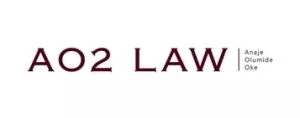Background:
An internal memo of the Federal Inland Revenue Service (FIRS) dated July 25 1 2018 and captioned "Re: Circular on Withholding Tax Utilisation and K-Card Update Key Deliverables" (Memo) has become public knowledge. The Memo directed all Tax Controllers and State Monitors to issue to taxpayers, a letter in a template captioned "Overpayments/Withholding Tax Confirmation/Reconciliation for System Upload" (WHT Reconciliation Notice). Each WHT Reconciliation Notice is to be accompanied by a withholding tax (WHT) usage request sheet (Request Sheet). On receipt of the WHT Reconciliation Notice, the taxpayer is to complete the Request Sheet and go to its relevant FIRS office for a review, reconciliation and sign-off, by the taxpayer and the FIRS, of both the Request Sheet and a journal adjustment voucher (JAV). While the Memo required that that the sign-off of the Request Sheet and JAV be completed by August 30, 2018, the WHT Reconciliation Notice gives the taxpayer 15 days from the [date of] WHT Reconciliation Notice to fill the Request Sheet and attend the FIRS office with relevant documentary proofs, for joint review and sign-off. The WHT Reconciliation Notice states that failure to comply with its directive will foreclose all options of the taxpayer for reconciliation and the taxpayer will have to accept the FIRS' position. The Memo states that all utilization requests for WHT credits that have exceeded 3 years must be audited by the FIRS' management. In this brief, we undertake a review of the underlying issues and legal implication of the Memo and WHT Reconciliation Notice on the rights of the taxpayer in Nigeria's WHT/income tax system.
Administering WHT in Nigeria: The Confusions
The concluding 16 words of the Memo gives an insight into, perhaps, the overriding intention of the FIRS; the need for Nigeria's foremost revenue agency to understand and plan for WHT claims on its future revenue collection projections. We provide some context to this intention.
Save in the case of WHT expressed by law to be a final tax (WHT as Final Tax or WaFT (please note that the use of "WHT" in this brief excludes WaFT), WHT collected by Federal and State revenue authorities in Nigeria are ordinarily debit entries until reconciled with the final income tax position of the taxpayer. This statement derives from the very nature of WHT on the Nigerian income tax system. WHT is a system for the advance collection/payment of income tax; it is not the income tax, but a system for its collection/payment. The WHT received by the tax authority is a payment on account in respect of income tax. Save for its express statutory recognition, it is a pre-payment. Revenue authorities should not consider WHT receipts as revenue until the income tax position of the tax payer is established and exceeds or equals the WHT collected. Thus, when the revenue authority projects the income tax it is due to receive, it should set off such projection with the value of WHT receipts in its possession. Given this context, it appears that the FIRS is currently unaware of its exact total WHT receipts, hence the Memo and WHT Reconciliation Notice.
In WHT administration, the taxpayer is the party/payee whose monies have been deducted by the payer and paid over to the tax authority. The payer is a statutory agent of the tax authority and would be liable to the tax authority if it fails in its statutory obligation of deduction from the payee and remittance to the tax authority. The monies in question is the payee's potential income tax. The tax authority as principal and payer as agent stand on one and same side of the divide in ensuring that the payee, who stands on the other side, gets duly credited for monies deducted from it and remitted to the tax authority. The taxpayer/payee plays no part in the remittance side of the transaction. Nigeria's tax laws place no obligation on the taxpayer other than its right to set off monies deducted on account of WHT from its final income tax position. This fact is far from current reality in light of events such as the Memo and WHT Reconciliation Notice as they require the taxpayer to come forward to prove its WHT credit position, otherwise it stands the risk of losing its objective WHT credit position to a probably subjective FIRS position.
The unfairness to the bleeding taxpayer is further exacerbated by the fact that it is not called upon to establish the provable monies that have been deducted from it by the FIRS' agent, the payer, rather it is called upon to establish the WHT Credit Notes in its possession. As will be seen from the next header, WHT Credit Notes are documents/instruments issued by the FIRS to confirm the monies received by the FIRS from the payer on account of the taxpayer. WHT Credit Notes do not recognise monies that have been deducted by the FIRS' agent - the payer, but not remitted to the FIRS.
Legal Considerations for the Intended New Order:
Giving the foregoing context, we wind down this brief with 4 distinctive tax law and practice issues that the Memo and WHT Reconciliation Notice throw-up:
- Section 61 of the FIRS
(Establishment) Act 2007 (compiled as Cap. F36, Laws of the
Federation of Nigeria 2004) (FIRS Act), empowers the management
board of the FIRS to, with the approval of the Minister of Finance,
make rules and regulations that are necessary or expedient for
giving effect to the provisions of Nigeria's income tax laws,
among other tax laws. No WHT-focused regulations have been made
since the commencement of the FIRS Act. The last WHT-focused
regulations in Nigeria was made in 1997. The 1997 WHT Regulations
for corporate and personal income taxes currently do not speak to
the realities of WHT administration in Nigeria. For example,
neither of the Regulations provide for the much vaunted WHT Credit
Notes. All the Regulations require is that the payer, upon
deduction of WHT form the taxpayer/payee's monies make
available a WHT Receipt to the payee – Regulations 3(1). To
claim WHT credit, all the payee is required to do is, submit to the
FIRS, the WHT Receipt issued by the payer – Regulations 3(2).
There is no requirement to provide to the FIRS, WHT Credit Notes
issued or issuable by the FIRS, to satisfy a claim for WHT credits.
The wordings of the 1997 WHT Regulations shields taxpayers from
unscrupulous payers who deduct and do not remit WHT. All the
taxpayer/payee needs to have is its WHT Receipt as issued by the
payer
In WHT administration, the taxpayer is the party/payee whose monies have been deducted by the payer and paid over to the tax authority. The payer is a statutory agent of the tax authority and would be liable to the tax authority if it fails in its statutory obligation of deduction from the payee and remittance to the tax authority. The monies in question is the payee's potential income tax. The tax authority as principal and payer as agent stand on one and same side of the divide in ensuring that the payee, who stands on the other side, gets duly credited for monies deducted from it and remitted to the tax authority. The taxpayer/payee plays no part in the remittance side of the transaction. Nigeria's tax laws place no obligation on the taxpayer other than its right to set off monies deducted on account of WHT from its final income tax position. This fact is far from current reality in light of events such as the Memo and WHT Reconciliation Notice as they require the taxpayer to come forward to prove its WHT credit position, otherwise it stands the risk of losing its objective WHT credit position to a probably subjective FIRS position.
The unfairness to the bleeding taxpayer is further exacerbated by the fact that it is not called upon to establish the provable monies that have been deducted from it by the FIRS' agent, the payer, rather it is called upon to establish the WHT Credit Notes in its possession. As will be seen from the next header, WHT Credit Notes are documents/instruments issued by the FIRS to confirm the monies received by the FIRS from the payer on account of the taxpayer. WHT Credit Notes do not recognise monies that have been deducted by the FIRS' agent - the payer, but not remitted to the FIRS. - The period limited by both the Memo and WHT Reconciliation Notice for a taxpayer to make its WHT credit claim conflicts with the income tax laws which graced taxpayers with 6 years to make income tax claims against Federal and States' Revenue Services. See generally Section 91 of the Companies Income Tax Act, 1979 (as amended and compiled as Cap. C21, Laws of the Federation of Nigeria 2004; and Section 84 of the Personal Income Tax Act, 1993 (as amended and compiled as Cap. P8, Laws of the Federation of Nigeria 2004). The statements on time limitation in the Memo and WHT Reconciliation Notice will not stand has they have no legal foundation.
- Assuming without conceding that the FIRS is within its lawful powers to issue the WHT Reconciliation Notice, the WHT Reconciliation Notice can in such circumstance only bind taxpayers who were duly served with one. We are aware that a great number of taxpayers who have WHT credit positions are, as at date, yet to receive the WHT Reconciliation Notice. The intentions of the Memo are not good as against all taxpayers in Nigeria, but only those who were duly served a WHT Reconciliation Notice.
- The Memo's statement that any request for the utilisation of WHT credits exceeding 3 years will attract an audit by FIRS' management throws uncertainty in the face of taxpayers who may have previously been audited by the FIRS for the relevant years of assessment for which the WHT credits relate. Does the Memo's statement suggest another round of field audit or will the previously undertaken audit, especially when concluded, suffice? This raises the practical issue of "unending audits" for taxpayers. In our view and given the current realities of FIRS' unending audit processes, this approach may not be efficient deployment of efforts and resources both by the FIRS and taxpayer. The FIRS has to come up with newer and more efficient audit processes for dealing with its time-costly tax audits.
Conclusion
Save for the mismatch in law in practice, the intentions behind the Memo and WHT Reconciliation Notice appear genuine and should ordinarily be applauded by all that are working towards an efficient WHT system in Nigeria. However, and in the absence of Regulations which validates the statements of rights and obligations in these documents, the FIRS will be infringing on the rights of taxpayers where it attempts to foreclose their rights to their WHT credits if they were to fail to fill and submit their Request Sheets before August 30, 2018 or within 15days of the [date of] WHT Reconciliation Notice. Rather than the current objectionable approach, the FIRS is implored to work on adopting more sustainable approaches in managing WHT credit notes documentation or usage. A functional WHT credits repository or even a WHT-focused platform for the trading of WHT credits-related instruments at premiums or discounts is strongly recommended. In the immediate, the FIRS should jettison its August 30, 2018 or 15days deadline and seek a more collaborative approach in dealing with the inefficiencies of WHT administration in Nigeria.
Originally published September 3, 2018
The content of this article is intended to provide a general guide to the subject matter. Specialist advice should be sought about your specific circumstances.




